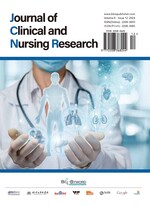Abstract
Objective: To explore an intervention strategy for patients with fluid overload undergoing maintenance hemodialysis and to evaluate the effects of the LEARNS model on improving self-care agency and patient compliance. Methods: A total of 76 patients with fluid overload undergoing maintenance hemodialysis at our hospital from March 2023 to March 2024 were selected for the study. Patients were randomly divided into two groups, with 38 in each group. The control group received conventional interventions, while the observation group was treated using the LEARNS model. Self-care agency, compliance, and quality of life outcomes in both groups were analyzed and compared. Results: Before the intervention, no statistically significant differences were observed in the self-care agency scores between the two groups (P > 0.05). After the intervention, patients’ self-care agency improved significantly, with the observation group showing notably higher scores than the control group (P < 0.05). Patient compliance in the observation group was also significantly higher than in the control group (P < 0.05). Quality of life, assessed using the SF-36 scale, showed no significant differences between the two groups prior to intervention (P > 0.05). After the intervention, quality of life scores improved significantly in both groups, with the observation group exhibiting significantly higher scores than the control group (P < 0.05). Conclusion: The LEARNS model is effective in improving patient compliance, enhancing self-care agency, and improving quality of life in maintenance hemodialysis patients with fluid overload, making it a promising approach for broader application.
References
Liu Y, 2024, Study on the Application of Mindfulness-Based Stress Reduction Therapy Combined with the Teach-Back Health Education Model in Maintenance Hemodialysis Patients. Chinese Health Care, 42(16): 100–103.
Fu H, Huang Q, Chen J, 2024, Application Effects of the 321 Health Education Model in Maintenance Hemodialysis Patients with Pruritus. Primary Medical Forum, 28(8): 7–9 + 19.
Sun X, Zha X, Zhang X, et al., 2023, Effects of the LEARNS Health Education Model on Self-Care Agency and Quality of Life in Maintenance Hemodialysis Patients. Chinese Clinical Nursing, 15(12): 757–761.
Ma C, Gao H, Shang C, et al., 2023, Application of Board Games in Volume Management Health Education for Elderly Maintenance Hemodialysis Patients. Chinese Nursing Education, 20(8): 901–908.
Xia J, Zhu W, Song D, et al., 2022, Application Effects of Tripartite Empowerment Combined with the Knowledge-Attitude-Practice Health Education Model in Exercise Intervention for Maintenance Hemodialysis Patients. Guangxi Medical Journal, 44(17): 2065–2068.
Huang J, Zhao R, Weng X, 2022, Application of Micro-Lectures Combined with Workshops in the Health Education of Arteriovenous Fistula Care in Maintenance Hemodialysis Patients. Qilu Nursing Journal, 28(17): 147–149.
Li Q, Zhang Y, 2022, Analysis of the Application Value of the 321 Health Education Model in Maintenance Hemodialysis for Uremia Patients. Smart Healthcare, 8(20): 182–185.
He Y, 2022, Application of the “123” Health Education Model in Maintenance Hemodialysis Patients with Pruritus. Contemp Nurse (First Issue), 29(5): 123–126.
Lin M, Xu B, 2021, Observing the Effects of the Knowledge-Attitude-Practice Health Education Model on Maintenance Hemodialysis Patients with Hypertension. China Medical Guidelines, 19(25): 44–45.
Liu C, Guan F, Lu S, et al., 2020, Effects of Peer Health Education on Dry Weight, Self-Management Ability, and Quality of Life in Maintenance Hemodialysis Patients. General Nursing, 18(29): 4010–4013.
